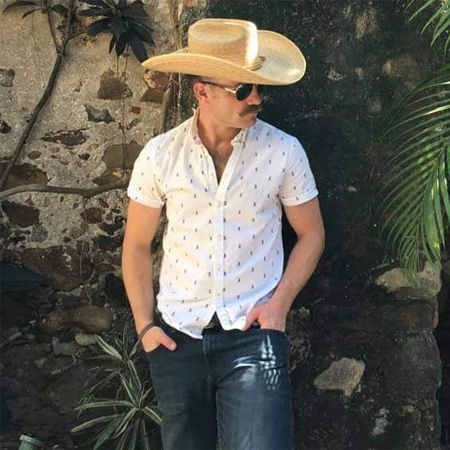The most fascinating part of garden design for me is the intersection of people with the natural world. Gardens are for living in and become an extension of how we live our lives. They also reflect where we are at in life. Gardens affect our mood and our sense of wellbeing, and they allow us to express ourselves on the canvas of the natural world.
A garden from a photo may evoke a visceral response for the viewer, it may get a like or a thumbs-up, or a comment like “garden goals,” on social media, but that is not experiencing a garden in the way they were meant to be experienced.
To truly experience a garden, we must be immersed in the space and feel its pulse.
Immersion is walking the pathways barefoot, feeling the smooth texture of sun-warmed flagstone, or the gentle lumpiness of ground-covering thyme. It is touching and caressing plants to release their fragrance and learn their essence.

Immersion in a garden is to get down on our knees with our faces near the ground to observe the mesmerizing interplay of soil, plants, and insects. If we get close enough, we’ll hear the sound of insect footsteps in the micro corridors and the frantic struggle for life as a pupa comes forth from a cocoon. While down there filled with wonder, we’ll stretch ourselves out on the life-giving soil and breathe in her sweet humusy breath and pledge our devotion as stewards.
At its most basic level a garden is an expression of human manipulation on the environment. In the root language, the word garden means enclosure. As such, a garden wall or fence can keep out predators or it can create a microclimate, warmer or cooler and less windy than the surrounding environment, and give the inhabitant of the garden a sense of security and separation from the outside world.
We also dictate what grows in our gardens. For some the selection is narrow and purposeful; for others it is much more random and flexible. In the range of plant choices and planting styles the preferences of an individual is expressed. By controlling the outdoor arena of our lives, we can create spaces where we feel safe, connected and grounded. This wonderful interplay between the human and the natural world is where true artistry exists in garden creation; and I believe it is the noblest art form that exists.
In the Local Harvest Gardening Forum, many people have disclosed their personal goals and desires for their lives and how they hope the course will help them achieve that. Upon close inspection a common thread emerges as we read comments like, “I want to be connected with our earth, with our food, and with each other,” or, “I want to leave the land better than I found it,” or, “I am concerned about my impact on the environment,” or, “Gardening for me is an escape from my busy life…”

These comments riddled the introductions page and illustrate the different things that we hope to gain from our gardens. The key as gardeners is to answer these needs as much as we can in our garden layouts and in how we structure our spaces.
If you yearn for a community connection in your neighborhood, consider a front yard garden for growing food. Nothing brings people together more easily than food; if you eat you’re in!
If you desire to provide an ecosystem for wildlife, be deliberate about adding water sources for drinking and bathing, and plants that foster diversity. If you feel a deep need to connect more meaningfully to the natural world, plant textured or fragrant plants to stimulate senses besides sight to fully absorb the nature around us. If you need to escape from the busyness of life, make sure the garden you create is enclosed and add an entrance arbour to signal a change of pace as you enter.
Once you identify the things that you hope your garden will achieve for you beyond the desire to produce wholesome, nutrient-rich food, you can implement design choices that fulfil those needs. As a result you will make your garden work for you, not just on the physical and organic level, but also on the psychological level. It will give you the feeling that you are at home in your space and immersed in an environment that is an extension of who you are.







